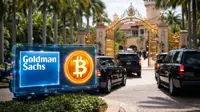SEBI slaps ban on UBS Securities for market crash of May 17 2004
By Our Markets Bureau | 18 May 2005
 Mumbai: The Securities and Exchange Board of India (SEBI) yesterday banned UBS Securities Ltd from issuing offshore derivative instruments for one year, following the investigation into its activities on May 17, 2004, the day the stock markets crashed.
Mumbai: The Securities and Exchange Board of India (SEBI) yesterday banned UBS Securities Ltd from issuing offshore derivative instruments for one year, following the investigation into its activities on May 17, 2004, the day the stock markets crashed. UBS Securities, its affiliates and agents have also been prohibited from renewing or rolling over any of the offshore derivative notes already issued, against the positions held by it in the Indian securities market for a period of one year.
SEBI has directed UBS to establish the highest standards of customer due-diligence process in line with the requirements of FII regulations.
UBS spokesperson, Matthew McGrath, said UBS is seeking further legal advice and intents to appeal the regulatory decision. However, complying with the order, the FII has stopped issuing derivative instruments against underlying Indian securities held by UBS in the Indian market.
UBS, a SEBI-registered FII, has been accused of accentuating the selling pressure on May 17, 2004 without any reasons linked to the fundamentals of scrips or their performance. The order also says that the FII might have earned substantial gains from its actions on that day.
On May 17, 2004, UBS sold securities worth Rs188.35 crore, which accounted for three per cent of the traded value for the day. However, on the previous trading day of May 14, the FII had only effected gross sales of Rs42.65 crore.
"The strategy of UBS appears to be that while its large scale sale in cash market would depress the market and thereby result in likely losses in the securities sold in cash segment, simultaneously the short positions in the futures segment held by UBS would turn profitable. The data obtained from UBS reveals that, while UBS incurred a loss of Rs17.54 crore on account of its sale in the cash segment, its short positions in futures (derivative) segment earned it a profit of Rs59.37 crore resulting in a net gain of Rs 41.83 crore," says the order.
SEBI also details that UBS did not furnish information sought by it during investigations into the market crash. The charges contained in the show-cause notice include that UBS has failed to furnish the complete information in respect of its clients as sought by SEBI. Whatever information was made available by UBS was obtained after repeated follow-ups involving a great deal of regulatory persuasion, according to the order.
SEBI chairman M Damodaran, emphasised that information sought during the investigation process must be provided. The punishment was consistent with the offence committed by the FII, according to him. SEBI had sent show-cause notices to 12 entities, this is the first order to be passed.
The order also accuses UBS of a deliberate attempt to obstruct the process of investigations by giving certain non-descript documents under the veneer of seeming compliance. The order says that even the requests of the SEBI board member G Anantharaman, during the course of personal hearing were not promptly and properly complied with by UBS.


















